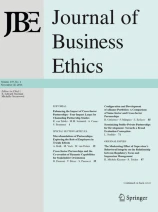Curious for more?

Punit Arora
Hi there!
Thanks for checking out my webpage. Here, you can get a glimpse of some of my recent and ongoing work. For more information, do not hesitate to get in touch!
Ph.D course:
- Corporate governance: Managing corporations for economic and social prosperity
Master’s/ Undergraduate courses:
- Strategic management
- Fintech entrepreneurship
- Technology entrepreneurship
- Social innovation and entrepreneurship
- Entrepreneurship in renewable energy
Alerts
Publication Alert
Immigrant entrepreneurship in the United States: Intersectionality as a blessing and a curse.
Abstract: Immigrant entrepreneurship is a crucial topic of interest for academics, policymakers, and the popular press. Discussions of related topics often use intersectionality to explain the compounding effects of multiple “oppressed” identities; the current study provides some novel insights into how intersectional effects can also confer unique advantages to immigrant populations in the United States. We examine intersectional effects across immigrants’ higher education, their home country’s entrepreneurial culture, and the host country’s state-level institutional environment on the probability that people become entrepreneurs. With a sample constructed from multiple sources and spanning 2005 to 2019, this research explores the channels that affect immigrants’ self-selection into entrepreneurship. Although higher education and entrepreneurial cultural background positively affect new venture creation, state-level institutional barriers, like E-Verify mandates, create heterogeneous effects across immigrant groups. Furthermore, the entrepreneurial culture of immigrants’ home countries leaves a lasting impression on venture creation, particularly when combined with higher education and even in the face of institutional barriers. This study offers policy makers relevant insights for how to augment the contributions of immigrant entrepreneurs and enhance the positive spillovers of new venture creation.
Executive summary: Immigration and immigrant entrepreneurship have prompted a great deal of interest among a wide range of audiences, from academics and policymakers to popular press and common people on the street. In the past two decades, immigrants have started a vast number of small businesses; they also have founded more than half of the “unicorn” startups valued at over $1 billion—and more than half of such unicorns list only immigrants as founders. As research has shown, immigrants are not just more likely to be entrepreneurs but also more likely to innovate. Considering this outsized representation of immigrants among entrepreneurs, identifying factors determining immigrants’ inclinations to start new ventures becomes theoretically and practically vital. This study compiles data from multiple sources and leverages advanced econometrics to provide robust evidence related to this question.
Specifically, we examine the intersectional effects of immigrants’ higher education (as a resource and identity) and their entrepreneurial mindmaps (as created by their home country’s entrepreneurial culture) in the context of the host country’s state-level institutional environment (denoting prevalent power structures), on the probability of being an entrepreneur in the United States. Prior research frequently utilizes intersectionality theory to predict the compounding effects of multiple “oppressed” identities; the current study provides novel insights into how intersectional effects can also confer unique advantages to some U.S. immigrant groups.
Intersectionality theory has been criticized for its overemphasis on innate traits, such as race and gender. These critics suggest the need to grant more consideration to dynamic contextual factors that also shape individual lived experiences, with the recognition that the “globalizing era provides opportunities for people to develop and enact new identities that are no longer necessarily tied to traditionally defined ethnolinguistic, national, or cultural identities” (Higgins 2011, p. 19). That is, individuals, including immigrants, are not confined to their innate identities but instead can mold those identities to achieve desired outcomes (Leitch and Harrison 2016). Such a perspective purposefully does not minimize the importance of oppressive power structures. As our research shows, some intersectional effects continue to constrain entrepreneurship among specific groups. Yet by clarifying the concurrent influence of contextual factors, we demonstrate how the theorized effects persist even across identity (sub)categories. In turn, our study highlights critical factors that can and do help people overcome institutional challenges. Policymakers can leverage this information to identify and address both enablers and barriers to new venture creation.
In relation to immigrant entrepreneurship literature, this study demonstrates the enduring influence of cultural mindsets that immigrant entrepreneurs bring with them from their home countries to their destinations. Thus, immigrants’ risk-taking capacity and other entrepreneurial activities depend on not only their formal education but also the informal mindmaps that they have imbibed through cultures, customs, and traditions. By providing evidence of an embedded, intersectional identity of an “educated immigrant go-getter,” this study helps explain the widespread occurrence of immigrant entrepreneurship in the United States while simultaneously demonstrating the importance of formal institutional factors for determining entrepreneurship levels. Policymakers can use these insights to design interventions to attract, retain, train, mentor, and support immigrant entrepreneurs globally.
(Recommended citation: .
Awards & Recognitions
Research
“That’s Novel” Award: “Ownership Concentration and Corporate Environmental Irresponsibility: A Configurational Corporate Governance Approach,” 2022 AIB-NE conference, Washington, DC. The most inspirational paper: “Symbolic or Substantive Compliance with Gender Quotas,” European Academy of Management, 2019. Wiley-Blackwell Outstanding Dissertation in Business Policy & Strategy Award finalist, Academy of Management Annual Meeting in Boston, MA.
Service
Best reviewer, Journal of World Business, 2024. Best reviewer, Business & Society, 2020. ABCD Award for Excellence in Reviewing, AOM OMT Division. Best “Pathways to Innovation” team for “Scaling and Sustaining” student entrepreneurship, VentureWell Foundation & Stanford University, OPEN Conference. Research and Global Scholar Development Committees, AOM’s Entrepreneurship Division.
Teaching
CCNY Provost’s Pedagogical and Curricular Innovation Award. Excellence in Teaching/ Mentoring Award, Alumni Association of the City College of New York. VentureWell-Lemelson Foundation Faculty Grant for research and practice on Entrepreneurship in Renewable Energy Systems. Koch Foundation grant for the business model discovery process.
30+
Articles
70+
Countries
20+
Strategic reports
40+
Co-authors







